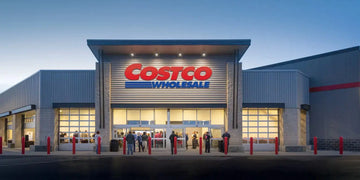When you think about poor eyesight, the first things that come to mind are usually glasses, contact lenses, or maybe the occasional headache after too much screen time. But what most people don’t realise is that poor vision quietly costs far more than just a new pair of lenses — it impacts your productivity, confidence, safety, and overall wellbeing.
For many, the idea of improving vision seems tied to expensive procedures or high-maintenance solutions. Yet, when you look closer at the long-term pricing for laser eye surgery Melbourne, the bigger picture becomes clear — the hidden costs of living with poor eyesight can often outweigh the investment in lasting correction.
The Financial Drain You Don’t Notice
Let’s start with the obvious: glasses and contact lenses add up. A single pair of quality prescription glasses can cost hundreds, and that doesn’t include regular eye exams, replacement lenses, or lost frames. Contact lenses come with their own ongoing costs — cleaning solutions, cases, and frequent restocking.
Over a decade, these recurring expenses can quietly total thousands of dollars. And if your prescription changes frequently, that figure climbs even higher. Unlike one-time corrective treatments, vision aids demand a lifetime of spending and upkeep.
The Cost of Lost Productivity
Blurry or strained vision doesn’t just affect how you see — it affects how you perform. Studies show that even mild vision problems can lower focus and efficiency. Whether you’re working at a computer or reading fine print, poor eyesight forces your brain and eyes to work harder.
That extra strain translates to fatigue, more mistakes, and a drop in concentration. Over time, it can also cause headaches and tension that make it harder to stay motivated. These small dips in daily performance may not seem like much, but multiplied across months or years, they significantly impact your productivity and earning potential.
The Emotional and Lifestyle Toll
Vision plays a huge role in confidence and quality of life. People with uncorrected or worsening eyesight often avoid activities they once enjoyed — like driving at night, travelling alone, or playing sports — simply because it no longer feels comfortable or safe.
That gradual withdrawal can affect self-esteem and independence. Even something as simple as reading a restaurant menu or recognising faces in a crowd can become a challenge, creating subtle stress that compounds over time.
It’s not just about sight — it’s about how vision affects your freedom to live without hesitation.
The Safety Risks You Overlook
Poor vision can make everyday tasks unexpectedly dangerous. Driving, for instance, requires clear depth perception and quick reaction times. Delayed responses due to blurred or unfocused vision increase the risk of accidents, not just for you but for others around you.
At home, small hazards — like missing a step or misjudging distance while using sharp tools — become more likely when your eyes can’t fully support your movements. These risks grow with age, especially when paired with other health conditions.
The Long-Term Health Connection
Your eyes are connected to your overall health more than most people realise. Chronic eye strain can lead to persistent headaches and tension in the neck and shoulders. Poor eyesight may also contribute to sleep issues, particularly when caused by digital fatigue or late-night screen exposure.
Additionally, skipping regular eye check-ups means missing early signs of serious conditions like glaucoma, cataracts, or even diabetes-related eye damage. By the time symptoms become noticeable, treatment can be more complex and costly.
The Real Value of Investing in Vision
Improving your eyesight isn’t just about seeing clearly — it’s about improving how you live. Many people hesitate to explore corrective options because they focus only on the upfront cost. But when you compare that to decades of glasses, contacts, and hidden expenses, the value of lasting vision correction becomes much clearer.
Laser eye surgery, for example, offers permanent freedom from the daily limitations and expenses of traditional aids. Beyond financial savings, it can boost your confidence, efficiency, and comfort in ways that are hard to put a price on.
Protecting Your Most Valuable Sense
Your vision shapes how you interact with the world. Ignoring the gradual decline in eyesight doesn’t just limit what you can see — it limits how you live, work, and feel.
Whether you choose to correct your vision surgically or simply adopt healthier eye habits, taking proactive steps today pays off for decades to come. Because when you invest in clear vision, you’re not just saving money — you’re buying back time, freedom, and peace of mind.




![Linner Mercury Clarity OTC Hearing Aids [FSA & HSA Eligible] Linner](http://www.linnerlife.com/cdn/shop/files/Linner-Mercury-Clarity-OTC-Hearing-Aids-_FSA-_-HSA-Eligible_-Linner-110038953.webp?v=1725853434&width=360)
![Linner Saturn OTC 補聴器 [FSA および HSA 対象]](http://www.linnerlife.com/cdn/shop/files/Saturn_2_muse_black.webp?v=1756780425&width=360)
